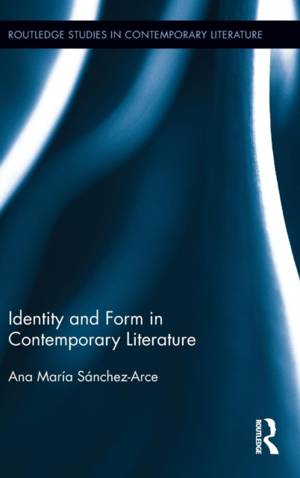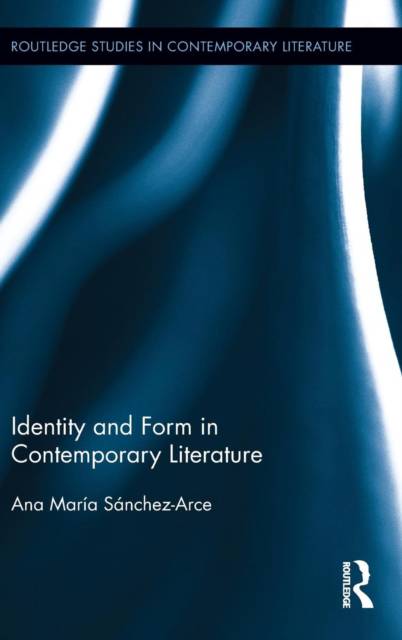
- Retrait gratuit dans votre magasin Club
- 7.000.000 titres dans notre catalogue
- Payer en toute sécurité
- Toujours un magasin près de chez vous
- Retrait gratuit dans votre magasin Club
- 7.000.0000 titres dans notre catalogue
- Payer en toute sécurité
- Toujours un magasin près de chez vous
Identity and Form in Contemporary Literature
Description
This ambitious and wide-ranging essay collection analyses how identity and form intersect in twentieth- and twenty-first century literature. It revises and deconstructs the binary oppositions identity-form, content-form and body-mind through discussions of the role of the author in the interpretation of literary texts, the ways in which writers bypass or embrace identity politics and the function of identity and the body in form. Essays tackle these issues from a number of positions, including identity categories such as (dis)ability, gender, race and sexuality, as well as questioning these categories themselves. Essayists look at both identity as form and form as identity.
Although identity and form are both staples of current research on contemporary literature, they rarely meet in the way this collection allows. Authors studied include Beryl Bainbridge, Samuel Beckett, John Berryman, Brigid Brophy, Angela Carter, J.M. Coetzee, Anne Enright, William Faulkner, Mark Haddon, Ted Hughes, Kazuo Ishiguro, B.S. Johnson, A.L. Kennedy, Toby Litt, Hilary Mantel, Andrea Levy, Robert Lowell, Ian McEwan, Flannery O'Connor, Alice Oswald, Sylvia Plath, Jeremy Reed, Anne Sexton, Edith Sitwell, Wallace Stevens, Jeremy Reed, Jeanette Winterson and Virginia Woolf.
The book engages with key theoretical approaches to twentieth- and twenty-first century literature of the last twenty years while at the same time advancing new frameworks that enable readers to reconsider the identity and form conundrum. In both its choice of texts and diverse approaches, it will be of interest to those working on English and American Literatures, gender studies, queer studies, disability studies, postcolonial literature, and literature and philosophy.
Spécifications
Parties prenantes
- Editeur:
Contenu
- Nombre de pages :
- 276
- Langue:
- Anglais
- Collection :
Caractéristiques
- EAN:
- 9780415821612
- Date de parution :
- 03-10-13
- Format:
- Livre relié
- Format numérique:
- Genaaid
- Dimensions :
- 152 mm x 231 mm
- Poids :
- 521 g

Les avis
Nous publions uniquement les avis qui respectent les conditions requises. Consultez nos conditions pour les avis.





